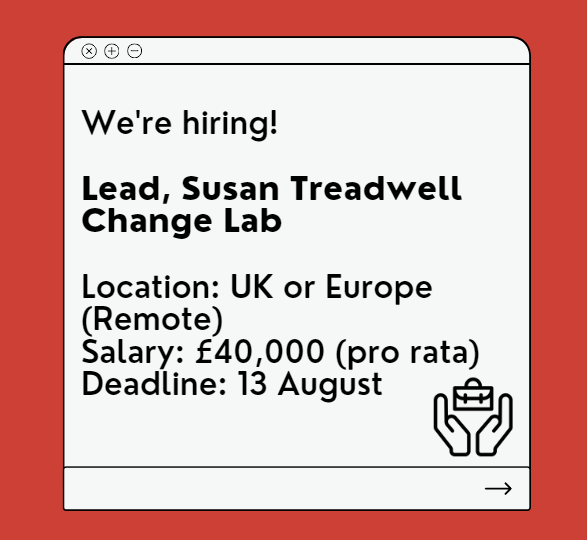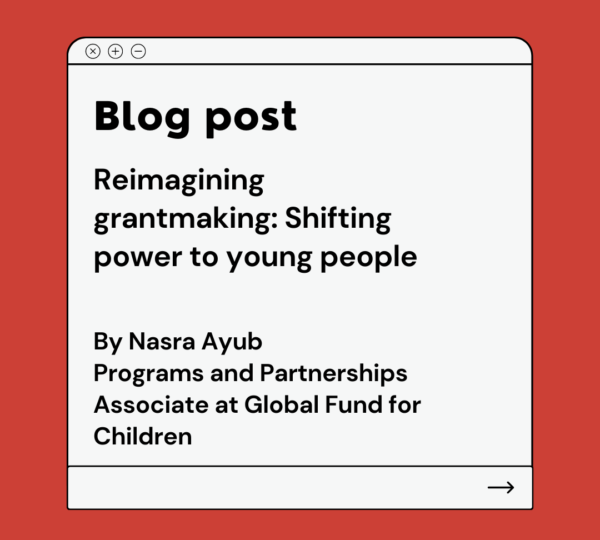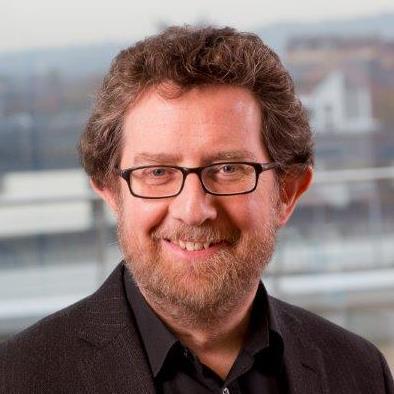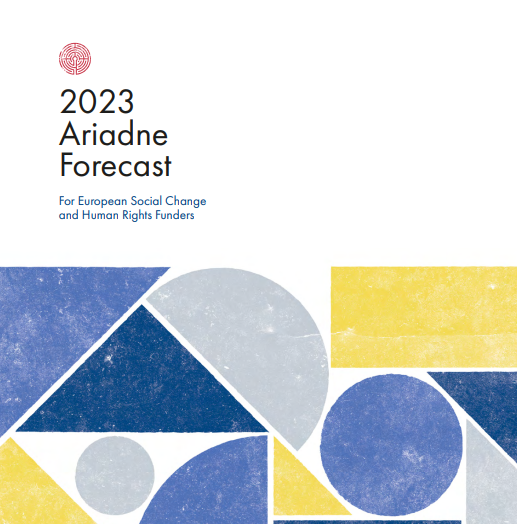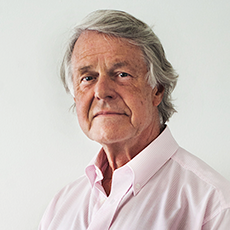 Rien Van Gendt, in his capacity as the fellow of the Major Alliance responsible for the area of refugees and migration, highlights the importance of investing in the children of refugees and of taking a long-term approach focussing on potential rather than deficits.
Rien Van Gendt, in his capacity as the fellow of the Major Alliance responsible for the area of refugees and migration, highlights the importance of investing in the children of refugees and of taking a long-term approach focussing on potential rather than deficits.
Rien Van Gendt: attention for children of refugees is crucial
“I urge funds to direct their money not only to tangible projects but also to changing perceptions of refugees in the Netherlands. All too often, refugees are seen as a threat to society instead of as an asset.” This was the plea made by Dr Rien van Gendt during an afternoon of discussion in The Hague on 15th February, organised by the Bernard van Leer Foundation and the Social Alliance.”
Integrated approach
During the meeting at the Nieuwspoort press centre, the results of a mini-think-tank were presented; aimed at developing an integrated approach to the integration of refugee families at local and national levels. Over the coming five years the Bernard van Leer Foundation intends to offer support to the integration of refugee families with young children in The Netherlands. To this end, it is now actively exploring the opportunities and challenges present within municipalities.
Rien Van Gendt’s speech
As the fellow of the Major Alliance responsible for the area of refugees and migration, Dr Van Gendt gave a brief speech highlighting the importance of investing in the children of refugees and of taking a long-term approach focussing on potential rather than deficits. His speech was as follows:
“For me, today’s gathering is an interesting event combining my work for the Bernard van Leer Foundation (BVLF), of which I was the Executive Director for several years and later a member of the Board, and the Major Alliance (MA), where I am currently responsible for the areas of refugees and migration. In both organisations, the starting point is not a deficit model, or an emphasis on people’s sometimes dramatic circumstances, or the immediate provision of emergency assistance. Instead, both organisations focus on people’s strengths, their potential and resilience. In other words, both organisations aim to build on that strength and to empower the other organisations with which they cooperate. This requires a long-term approach and a strategy geared towards social investments. And it is not surprising, given that the BVLF is a capital fund and capital funds are key partners for the MA with regard to multi-stakeholder collaboration. This is the essence of capital funds: because their income is secure, they can afford to take a long-term approach, and take risks, rather than be driven by the sometimes-capricious whims of politics and the general population.
The cornerstone of the BVLF’s work is the potential of young children – from their conception to four years of age – a potential that sometimes remains unfulfilled due to social, cultural or economic circumstances. The BVLF’s philosophy is that investing in young children produces a result that, in the longer-term, is reflected in strong social, emotional and cognitive development. A major strength of the BVLF’s approach is that it is not professionals who are primarily working with young children, but their parents and local communities: parents as the prime educators of their children, parents growing up with their children.
The MA was set up in 2015 as a collaborative effort between the government, foundations and the business sector to address major social issues which, by their nature, require attention from the public and private sectors, and to seek out concrete solutions. Issues the MA has addressed have included ageing, keeping childhood safe and healthy, and now refugees and migration.
The theme ‘Refugee families in the Netherlands: chances for integration’ unites these two organisations. Adding the National think-tank’s outstanding ability to think ‘outside the box’ on the issue of integrating refugee families in the Netherlands and offer new solutions, to the Nieuwspoort organisation’s provision of a venue for this discussion that is so close to the heart of democracy, you may well imagine I am a happy man today.
The issue of refugees cannot be dismissed as a small emergency or an isolated phenomenon. On the contrary: this is a major, multi-faceted problem. That migrants and refugees are coming to our country is a fact and will continue to be a reality in the coming decennia. We cannot ignore it, even in the face of discussions on more restrictive entry policies. The influx of people is not only inevitable, and our moral duty to face up to, but it also represents an opportunity, separate from humanitarian considerations. It is in fact in our own interests, given the demographic structures and developments in many European countries. This attitude reflects an approach based on my commitment to social investment. The price we would pay for not investing in the integration of refugees is too high.
Along with this comes the obvious need to focus our attention on the children of refugees. You could even say that, for many parents, their children are one of the main reasons for them to flee their homes. Some children travel with their parents, some follow later – mostly with their mothers – and some arrive as unaccompanied minors, a circumstance that is truly distressing. Interestingly, the influx of refugee families is currently stabilising or diminishing, but the number of later arrivals is rising sharply.
The SA is appealing to foundations to address these issues. Last year, the annual European Foundation Centre (EFC) conference was held in Amsterdam and attended by more than 500 foundations from around Europe. I was closely involved in the organisation of the conference and the closing statement. With the unanimous approval of those present, this statement urged foundations to shoulder responsibility for the issues surrounding refugees, whether or not that is part of their mission. Sometimes, problems are so big and so compelling that funds must look beyond the boundaries of their mandate and ego and just do something. In fact, if the original founders of many of these funds were still living they probably would have been the first to do so. In short, funds must accept that the problems facing refugees are also their own problems, even if their articles of association do not mention this explicitly. The second part of the EFC’s appeal to European foundations was a plea for increased cooperation in this area. It is encouraging to see that, under the leadership of the Association of Foundations in the Netherlands (FIN), the Dutch funds that are so well represented here today have responded overwhelmingly to both parts of the appeal and are seeking out innovative approaches to project financing.
Regarding the role we expect the government to play in the collaborative effort the MA has set up to examine questions surrounding the integration of refugees in the medium and long term, I believe the emphasis should be on removing the bureaucratic obstacles that so often appear. What is primarily needed is not government funding but the elimination of dysfunctional regulations. Given our topics of discussion today, it is incomprehensible that conversations with refugee children in the Netherlands reveal that young children – who have already experienced extreme stress or even trauma before reaching our country – are forced to move from one asylum centre to another once they arrive, sometimes within 18 months to two years. Some are even moved between five or six centres within the space of two years. This is dysfunctional, and it is a violation of children’s rights. The Dutch practice of shunting refugee children around adds yet another layer of stress on top of what they have already been through. What’s more, children aged four and under who have not yet been granted refugee status are excluded from every provision, a very dire situation indeed.
We, the MA, have called on the government to ensure that children who arrive at reception centres are settled in the stable environment of a single asylum centre until they can be taken in by a municipality. Not only would this provide stability for children and their parents, but it would also enable them to make use of local facilities for their settlement and integration. The unnecessary shifting around of children must stop. This is another obstacle to the integration process, which is the ultimate goal of municipalities in the Netherlands. Happily, at the end of 2016 the state secretary wrote to parliament requesting a review of this situation, and he is now eager to meet with organisations such as the MA to hear our ideas on how the situation can be addressed.
For municipalities, which play a crucial role in their integration, the entrance of refugees into the labour market is a high priority. But getting results is a more complex process than people tend to think, and requires more than a mechanical matching of the supply and competences of refugees on the one hand and the demands of the job market on the other. Issues such as language skills, communication in teamwork situations, training and cultural differences can stand in the way of quick success.
In this context, I would like to mention an initiative by the IMC Weekend School, a weekend programme which enables children to explore a wide range of professions. The weekend school has been running for nearly 20 years, and these days its alumni return to teach their peers. The school has now begun a special programme for refugee children aged 9 to 14. At the point where they are in transition classes learning Dutch, and before they begin lessons at ordinary schools, the IMC Weekend School offers them weekend classes which include guest lessons on interesting professions and an opportunity to discover their talents. This brings society into the classroom and lays the foundations for an active working life later. I look forward to today’s discussions and to formulating real opportunities for municipalities that will enable them to integrate refugee families effectively in all the ways I have described. We must learn from the sometimes-unsuccessful integration programmes of the past.
In closing, I urge funds to direct their money not only to tangible projects such as education, health care, job-market access and volunteer work, but also to changing perceptions of refugees in the Netherlands. In an era in which our political climate is giving more scope to xenophobia and one-dimensional thinking, it is more important than ever that funds address the narrative surrounding refugees. All too often, refugees are seen as a threat to society rather than as fathers, neighbourhood volunteers, colleagues, small-business owners – in other words: as assets to society. I am happy that organisations such as the VJ Movement, which applies itself to the perception of refugees, is here with us today.”
Rien van Gendt


